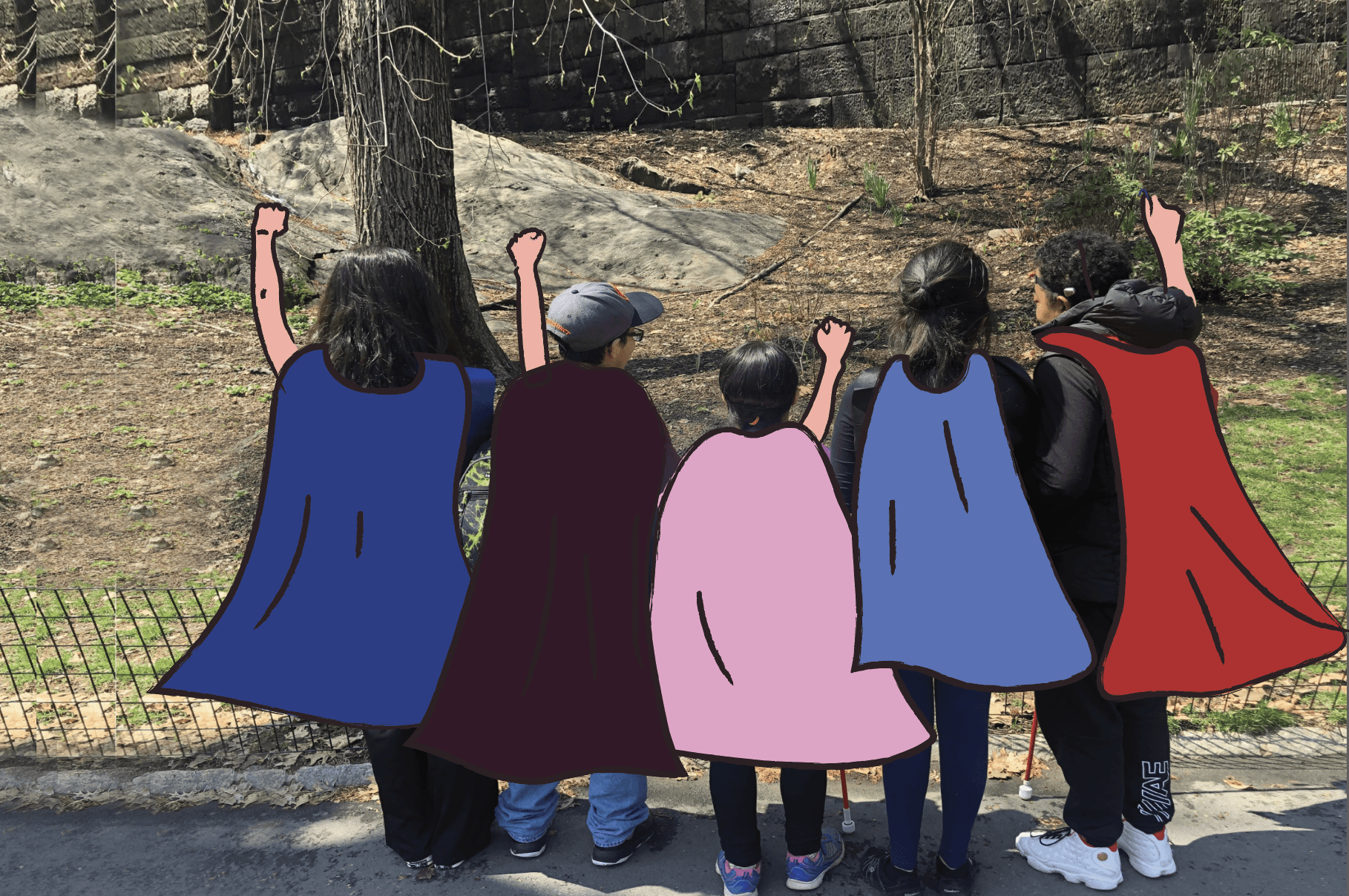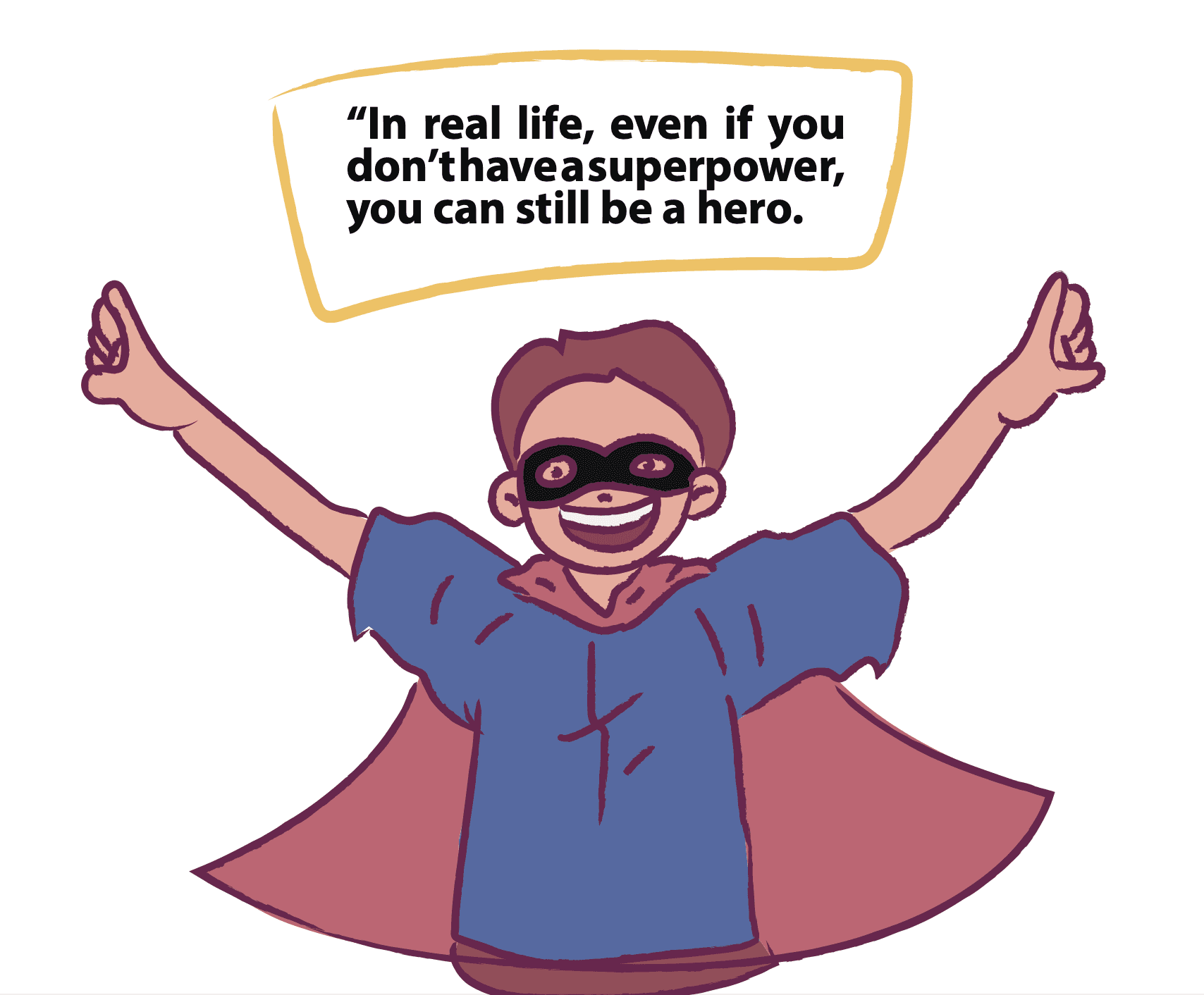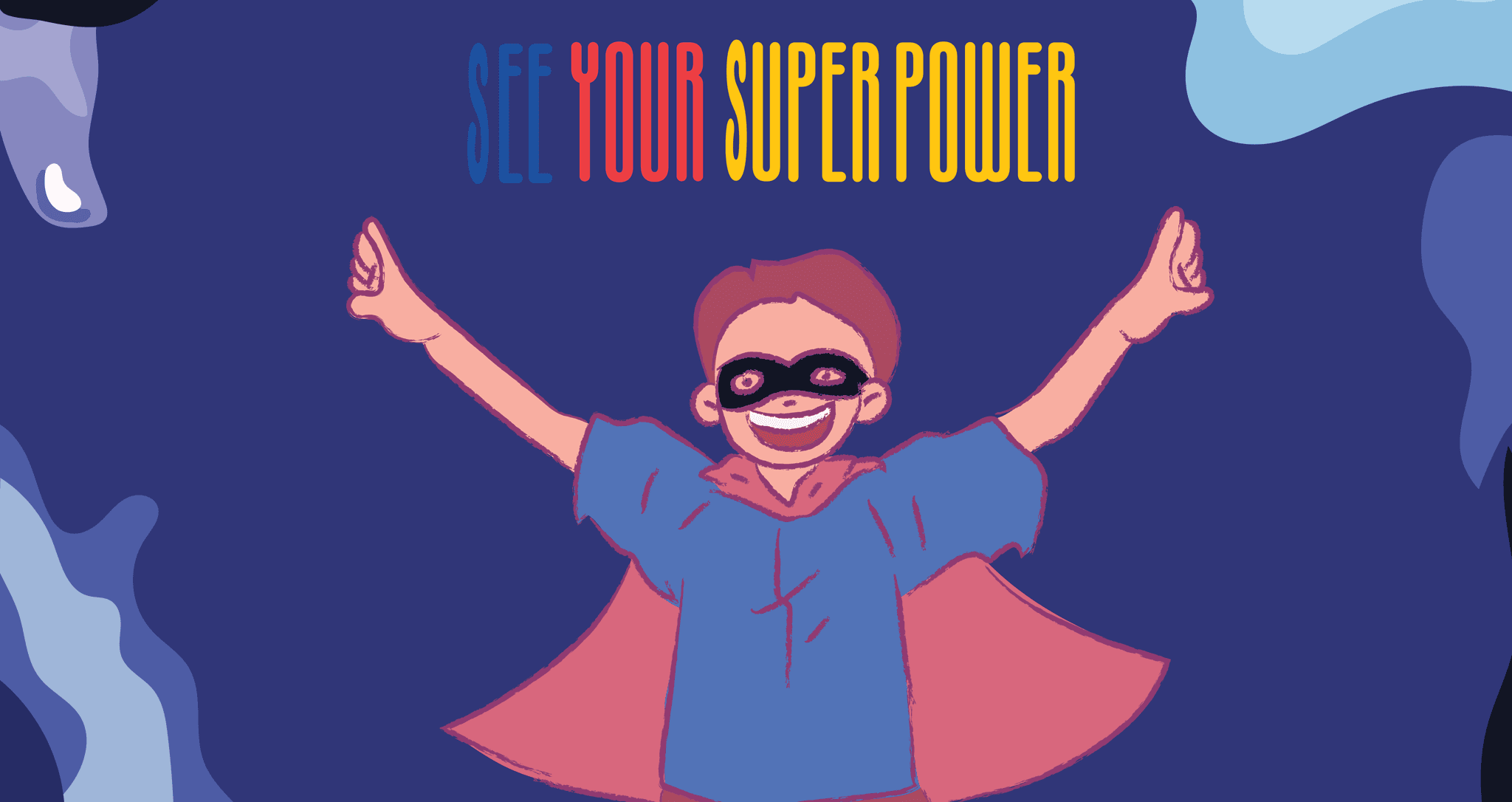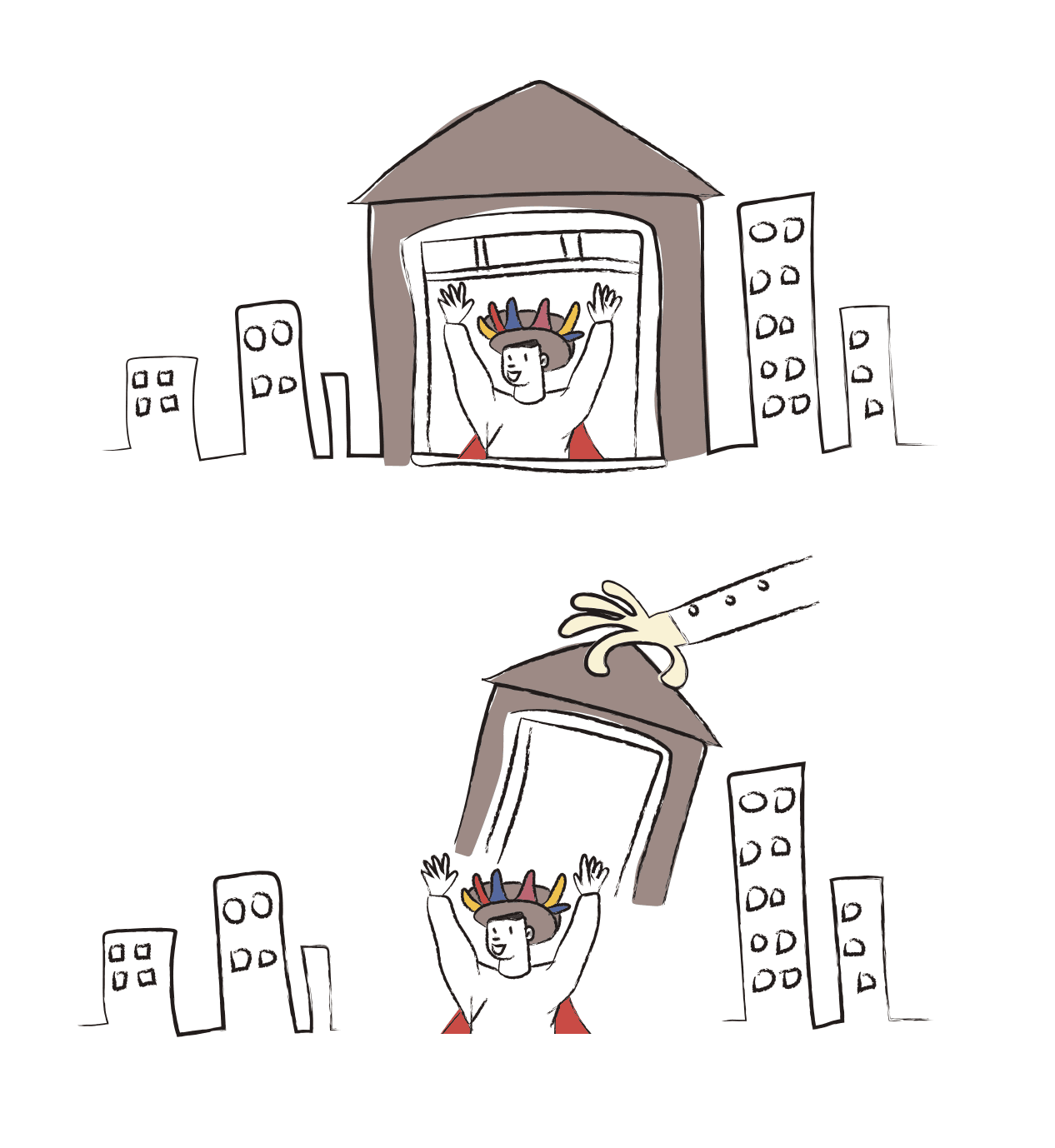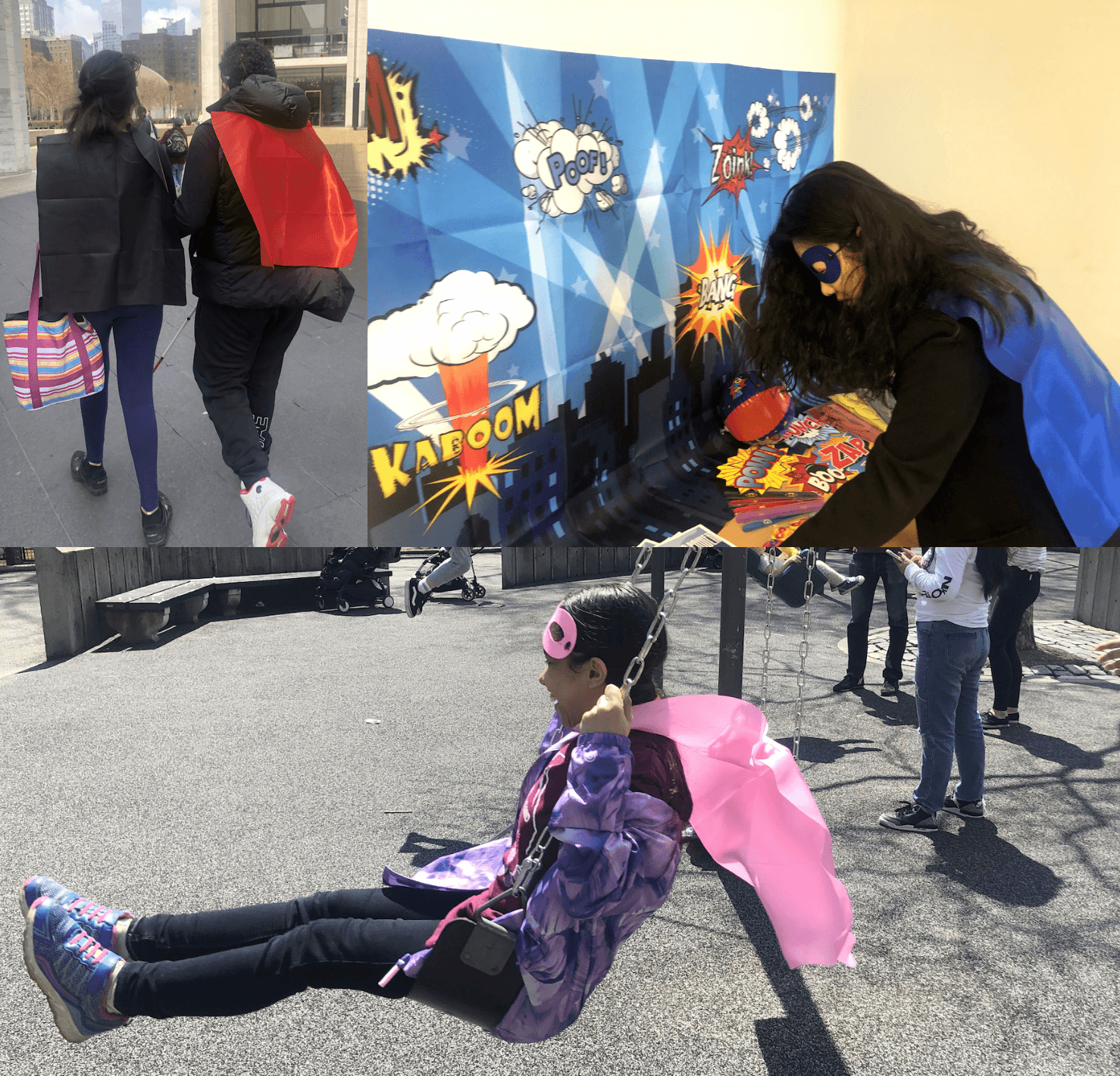Strategic Design
See Your Superpower is a project designed to help visually impaired teenagers build confidence, explore creativity, and turn their ideas into reality through strategic design.
Overview
"See Your Superpower" is a thesis project developed for the Design for Social Innovation (DSI) program at the School of Visual Arts (SVA). Inspired by my volunteer work with the Youth and Teen Support Program at Lighthouse Guild, the project focuses on empowering visually impaired (VI) teenagers to overcome challenges, embrace their creativity, and discover their unique potential.
Visual impairment, or vision loss, affects approximately 26.9 million Americans. Among them, teenagers face unique social challenges that can deeply impact their personal and academic growth. Without strong social skills, visually impaired (VI) teens often struggle to keep up with their sighted peers in forming friendships, communicating confidently, and engaging in collaborative environments.
These challenges can lead to isolation, lower academic performance, and hindered emotional and social development. Without the right support, VI teens may face difficulties in building relationships, which can affect their self-esteem and future opportunities.
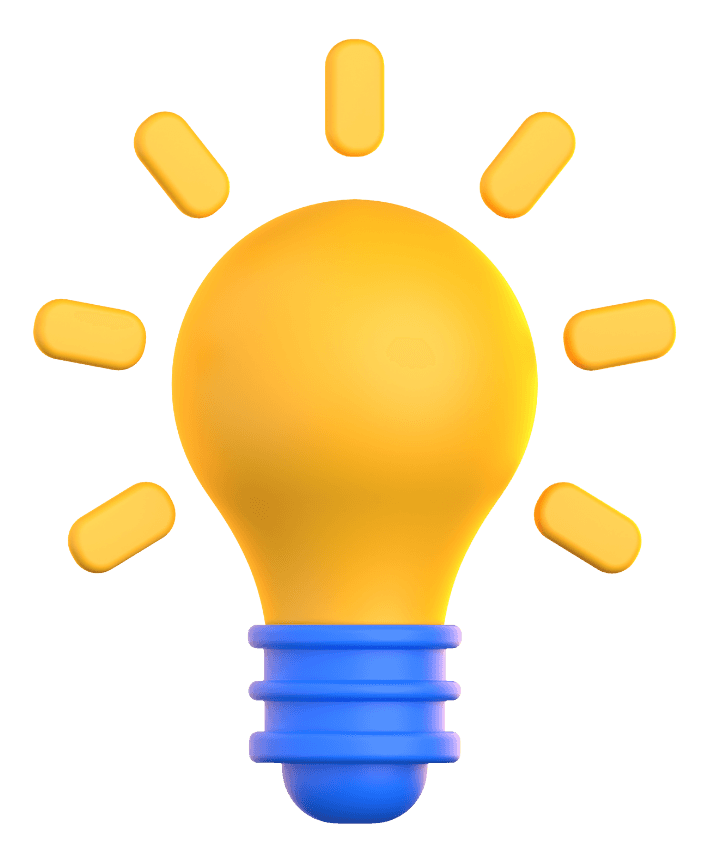
How might we help visually impaired (VI) teenagers build relationships with their peers by improving their communication skills and self-confidence through a designed intervention?
Research
To create an impactful and meaningful solution, I conducted both secondary and primary research to deeply understand the experiences and challenges faced by visually impaired (VI) teenagers.
I began with secondary research to gain a thorough understanding of visual impairment and the unique challenges VI teenagers face. This included studying academic papers, articles, and reports about social and emotional development, accessibility barriers, and tools available for VI teens.
Building on my secondary research, I engaged directly with the VI community through primary research. I connected with various groups and experts, including the Manhattan and Queens FFB Networking Groups and other NYC-based organizations supporting visual impairment. This involved:
Attending symposia, seminars, and workshops to gather insights.
Conducting semi-structured interviews with 26 experts, networking groups, VI teenagers, and their parents.
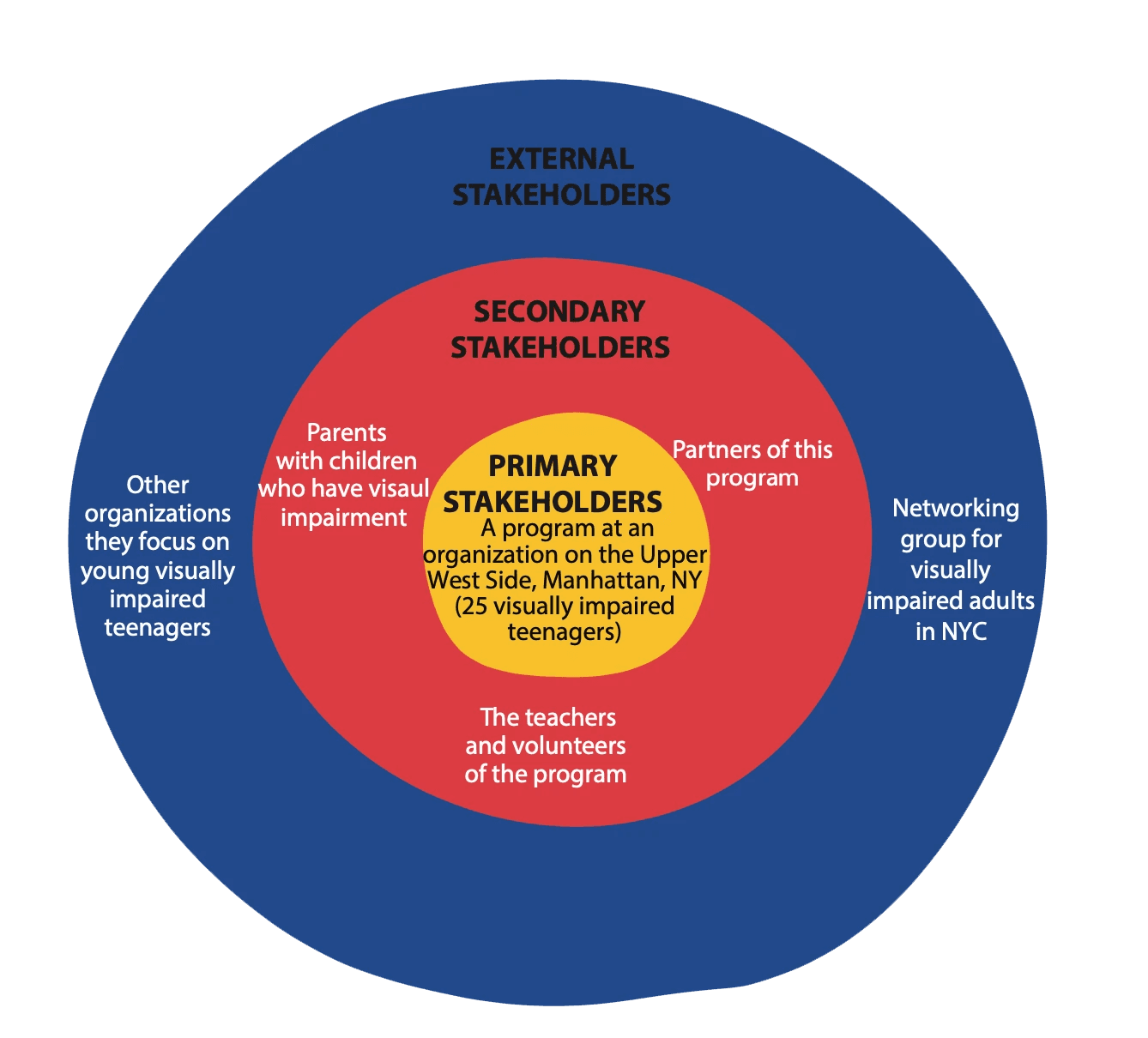
Findings
Based on primary and secondary research, I explored the social challenges faced by visually impaired (VI) teenagers. This process revealed key insights that guided the direction of See Your Superpower, helping me identify ways to support their social skill development.
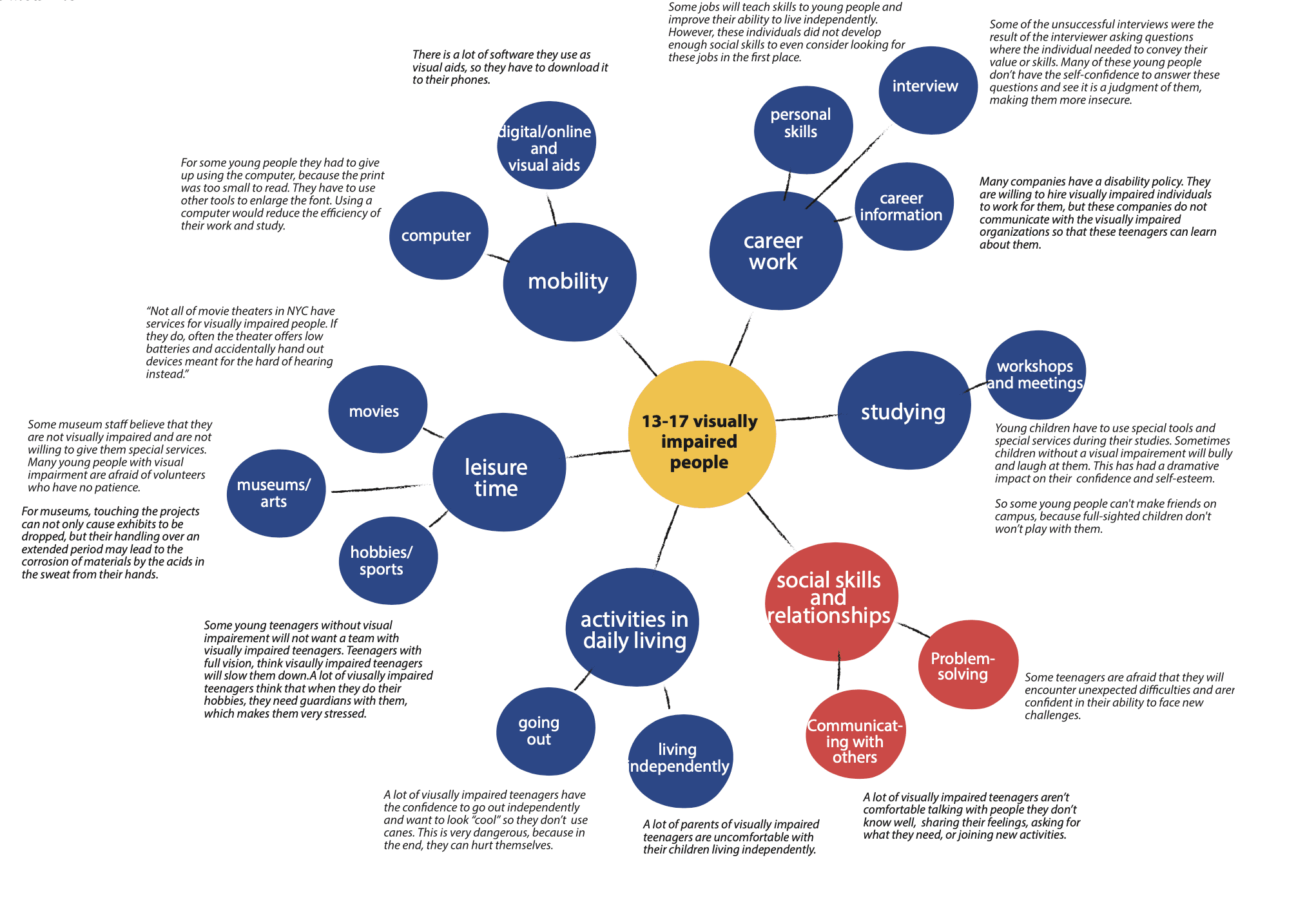
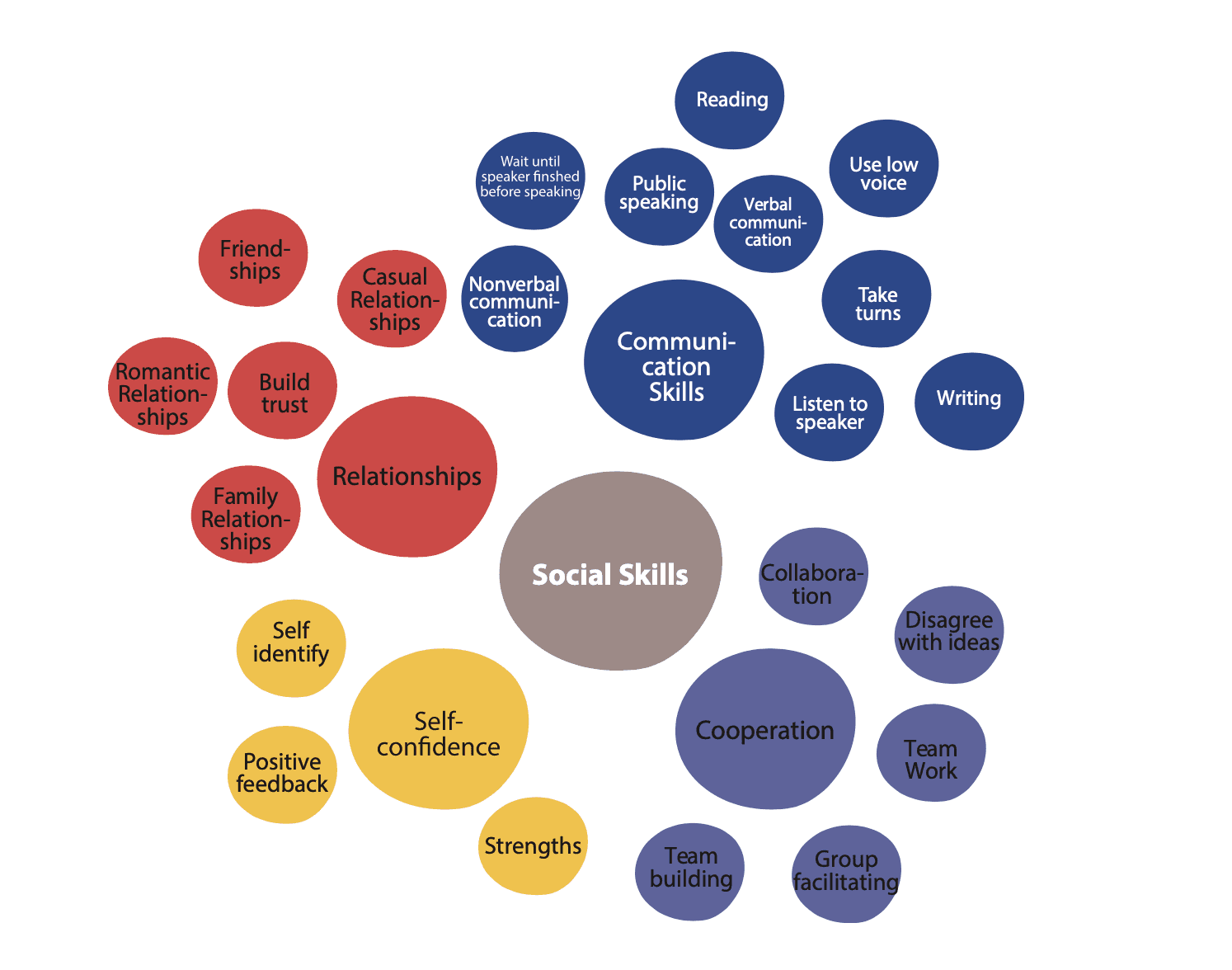
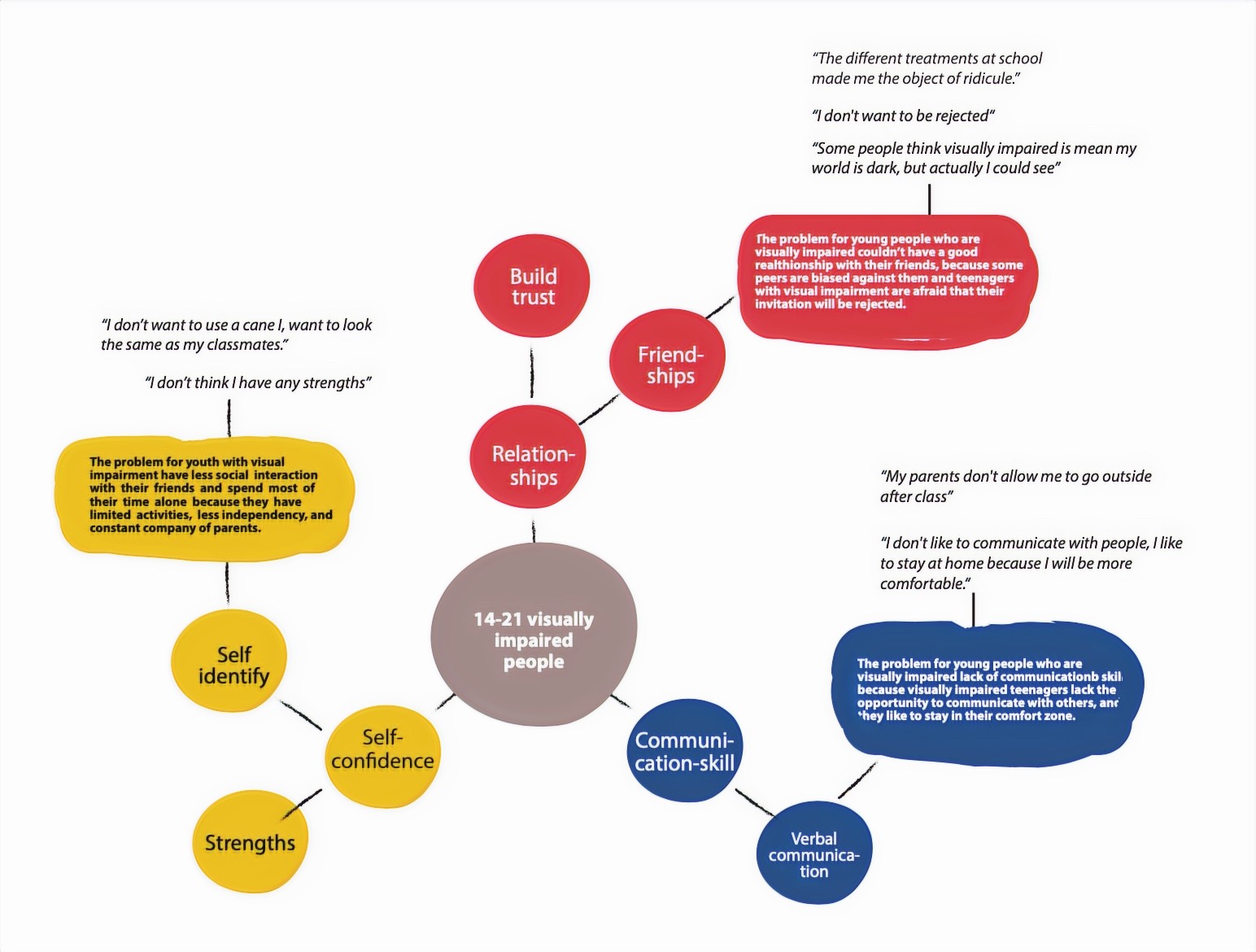
There are three insights based on my research:
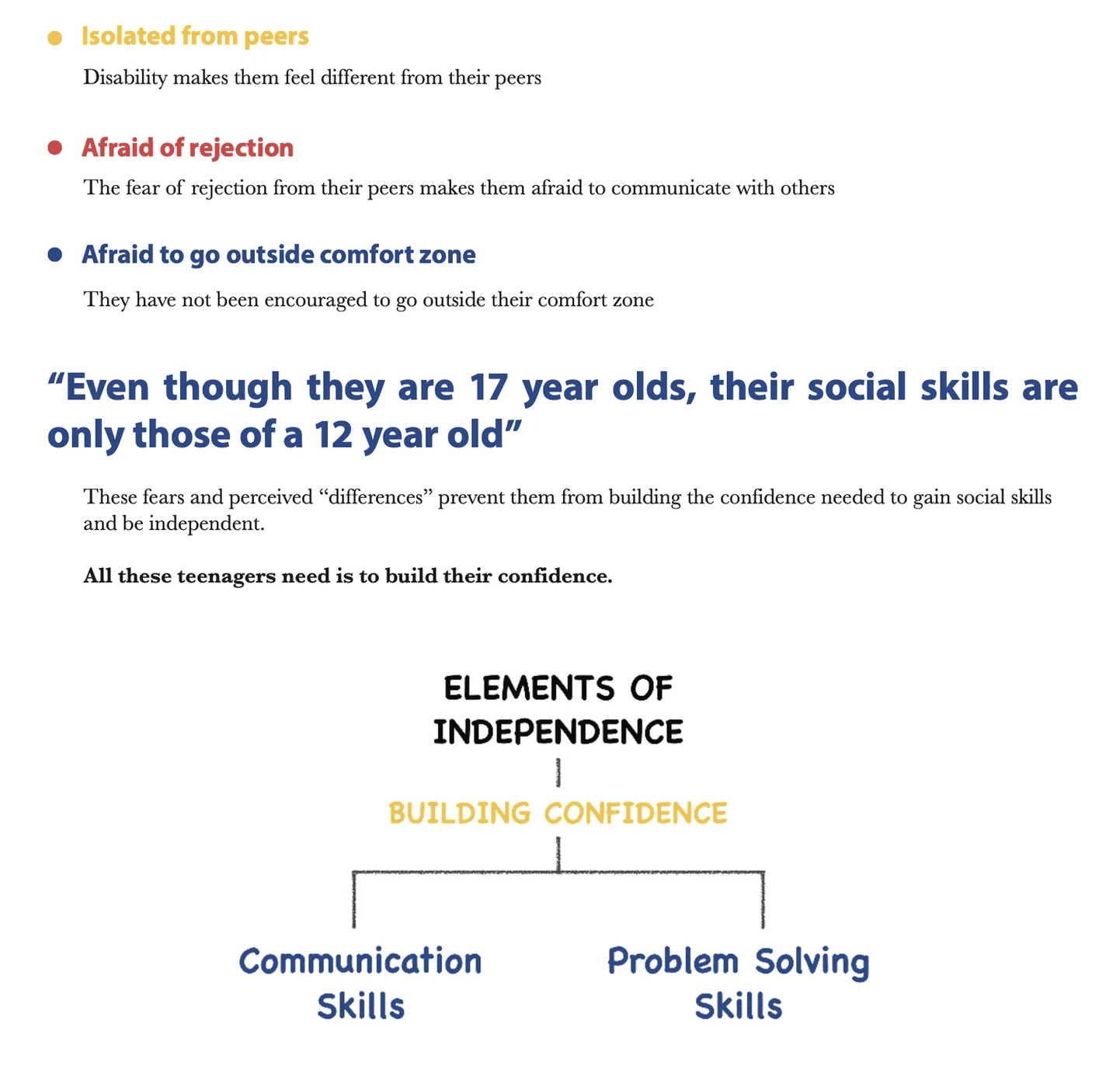
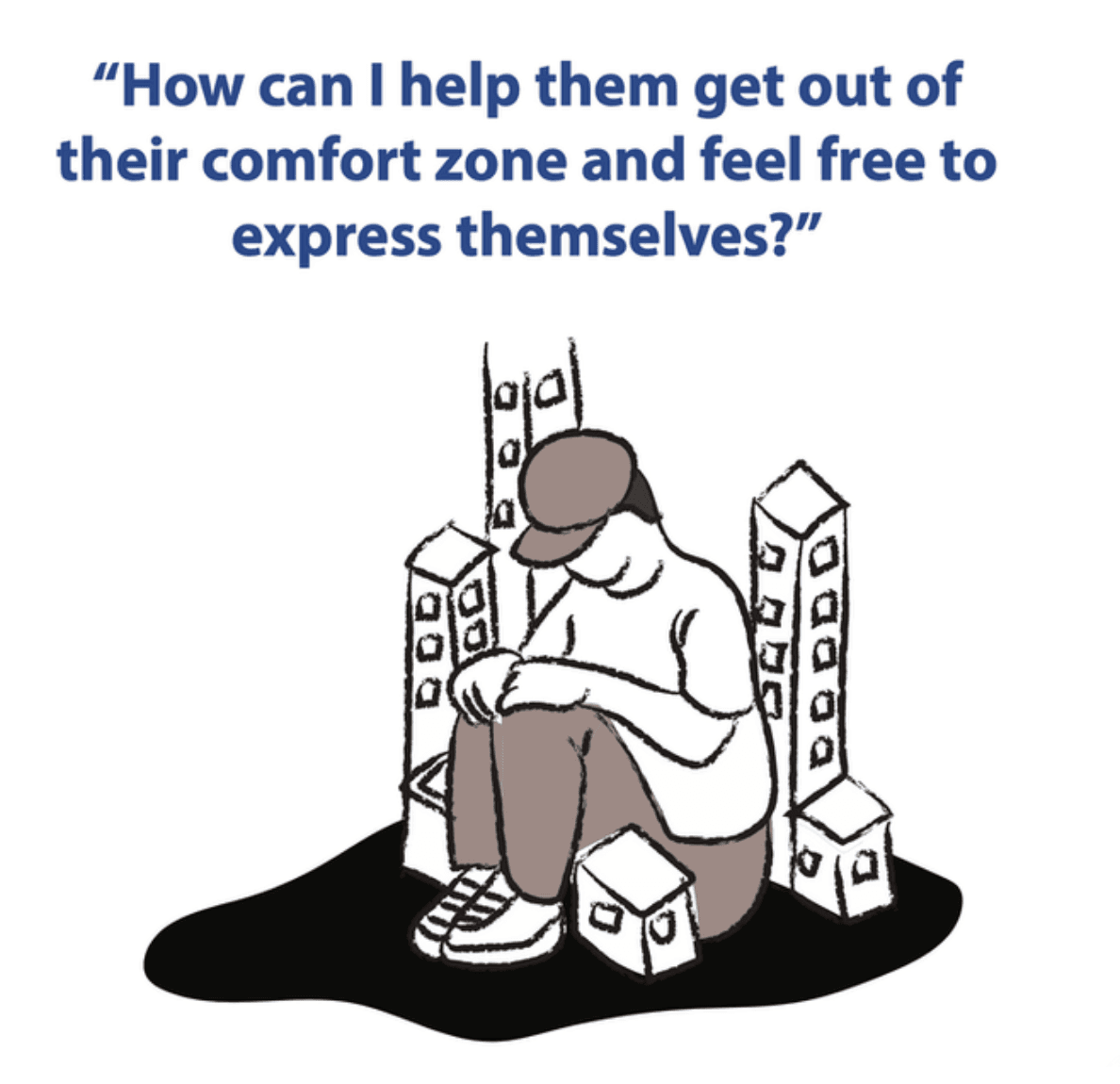
Ideation

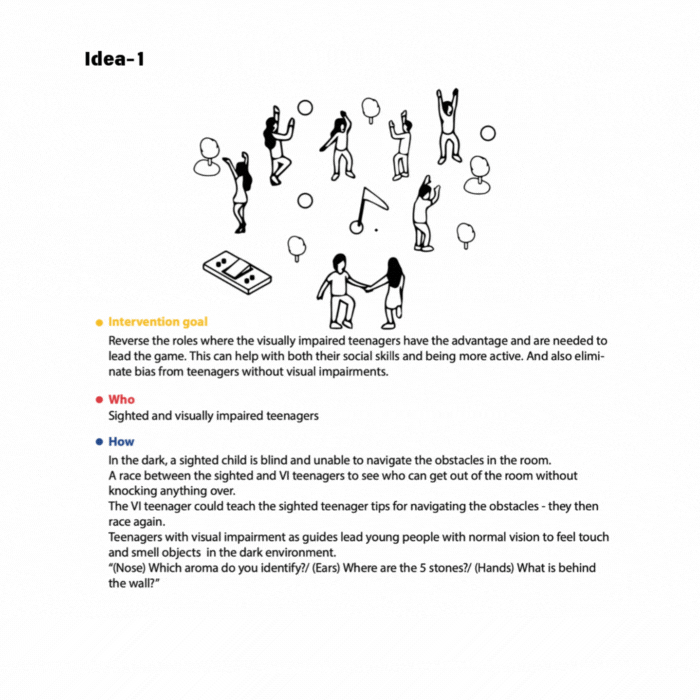
Using drama and superheroes, this idea helps visually impaired teenagers build confidence and encourages interaction between visually impaired and sighted children to reduce bias.

Why superheroes?
Superheroes reflect resilience and strength, helping VI teens see themselves as capable. Their hidden identities allow self-expression without fear of judgment, inspired by the teens’ interests in games and role-playing.
Why drama?
Drama helps VI teens explore roles, express emotions, and build social skills. Its structured process—planning, rehearsing, performing—boosts confidence and fosters personal growth.
Prototypes
I created an initial prototype using superhero and drama-based activities to help visually impaired (VI) teenagers build confidence and social skills. It included role-playing sessions, superhero-themed tasks, and group exercises with both VI and sighted teens. Feedback from these trials helped improve the activities to make them more accessible, engaging, and effective in promoting empathy and self-expression.
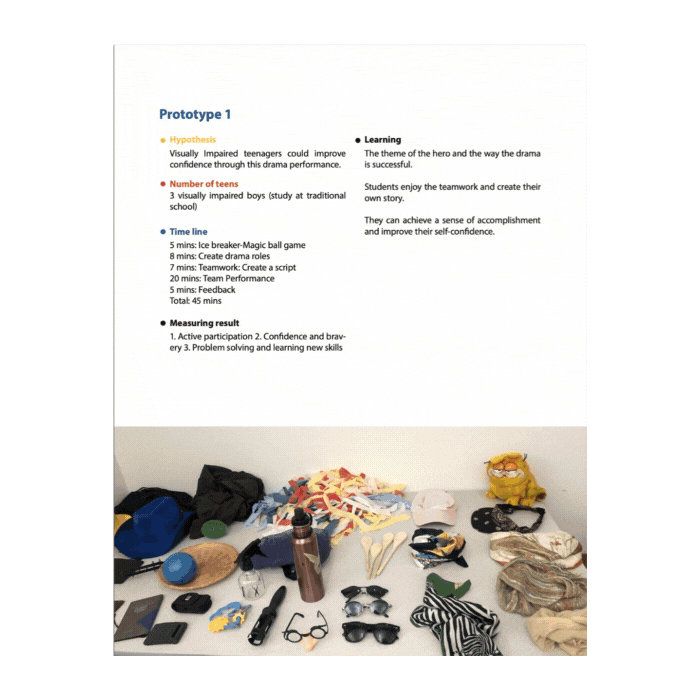
Pilot
For feedback with other teenagers, they have mentioned See your superpower stage offers me a safe environment to try on other roles and to express feelings. Also improve their creativity and enhance their self-confidence.
The role-playing of drama can help visually impaired teenagers improve their creativity and enhance their self-confidence. But how do I transfer this sense of accomplishment and confidence gained through dramatic role-playing into real life situations?
So I Used drama skills, just transitioned the setting from a fake backdrop to the real world. This intervention helped to build their confidence in a protected environment and then took the stage away so they could continue growing their skills where they’ll need it most – outside the school walls.
Intervention
In the intervention phase, I introduced structured activities—Super Stage and Super Life—to help VI teenagers build communication and problem-solving skills..
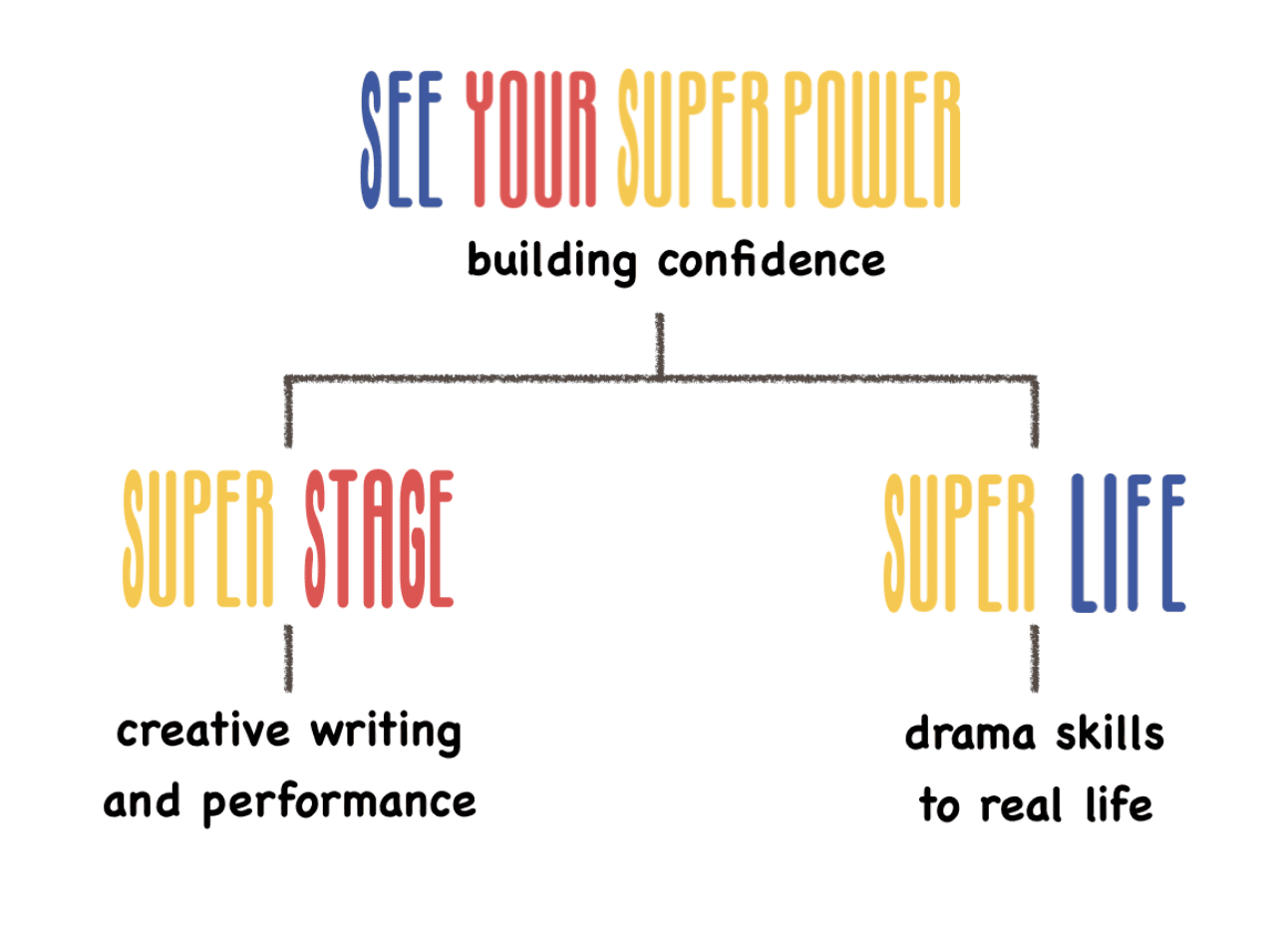
SUPER STAGE: This part focused on enhancing communication skills through superhero-themed activities.
“Being a superhero let me try things I never thought I could do. It gave me confidence to say, ‘I can do this!'”
SUPER LIFE: This stage focused on problem-solving and encouraged teens to step out of their comfort zones in everyday situations.
“You’re a superhero now. You should try something you’ve never done before.”
Evaluation
To measure the intervention’s impact, I designed surveys to track changes in self-confidence and problem-solving abilities:
👄 Communication Confidence:
Before the program, none of the VI teenagers felt “very confident” asking strangers for help. Afterward, 1 felt very confident, and only 2 felt “not confident,” showing progress in social interactions.
🔧 Problem-Solving Skills:
Before the program, 10 teenagers felt “a little confident” handling unexpected situations. Afterward, 2 felt “very confident,” and none felt “not confident,” indicating improved independence.
🌞 Overall Independence:
The program helped VI teenagers move from pretend scenarios to real-life challenges, gaining skills and confidence. I hope more VI teens are inspired to step out of their comfort zones and explore their potential.
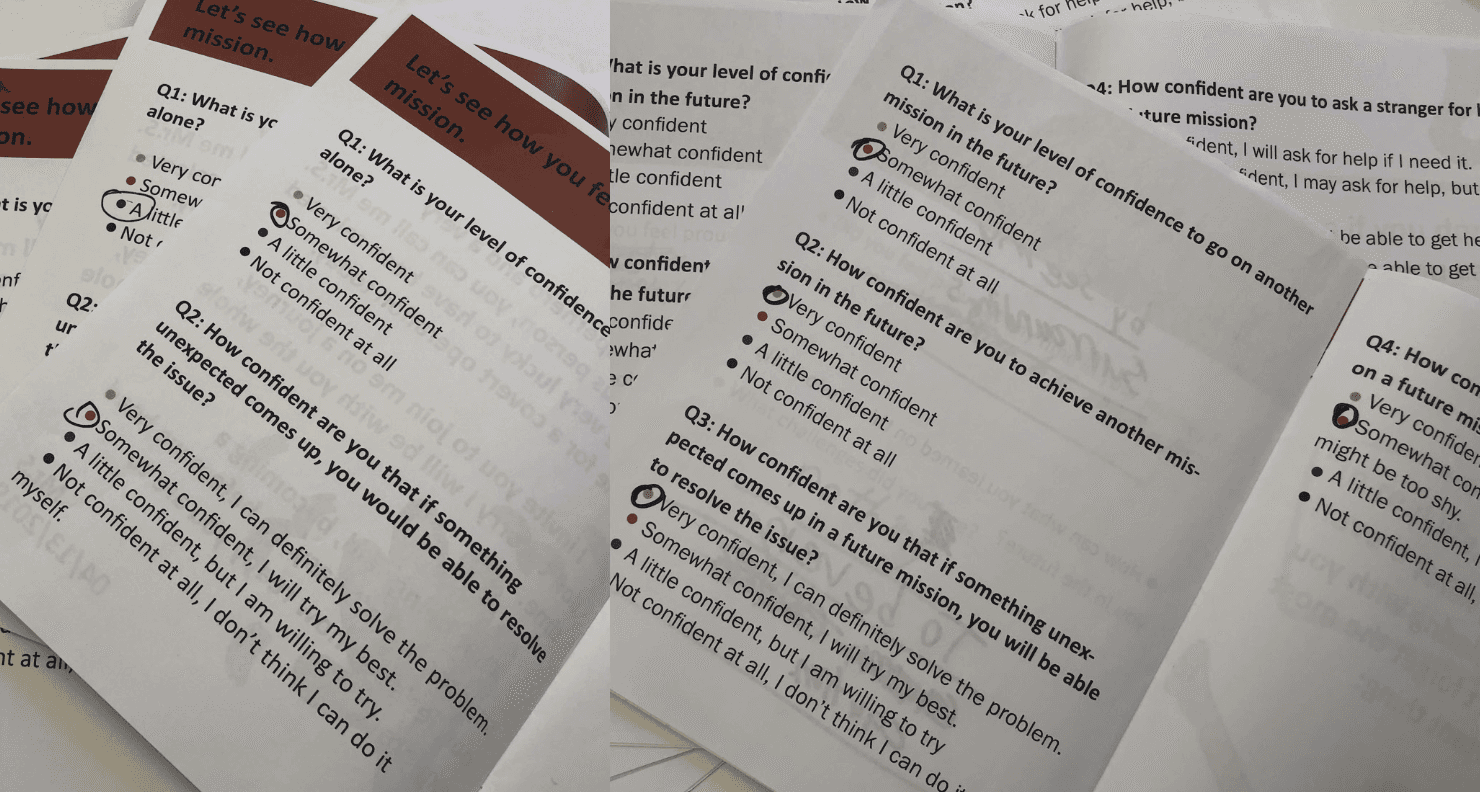
Next Step
The Your Superpower project, through its stages of See Your Superpower and Show Your Superpower, guided visually impaired teenagers from pretend scenarios to real-life experiences. Using drama, it helped them build confidence, self-expression, and independence. This project is just the start. I hope more visually impaired teens will step out of their comfort zones, like Kevin, to explore their potential. The next phase focuses on removing the “mask” and embracing self-confidence and independence.
